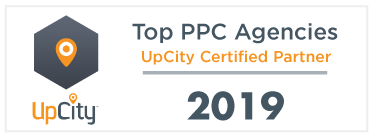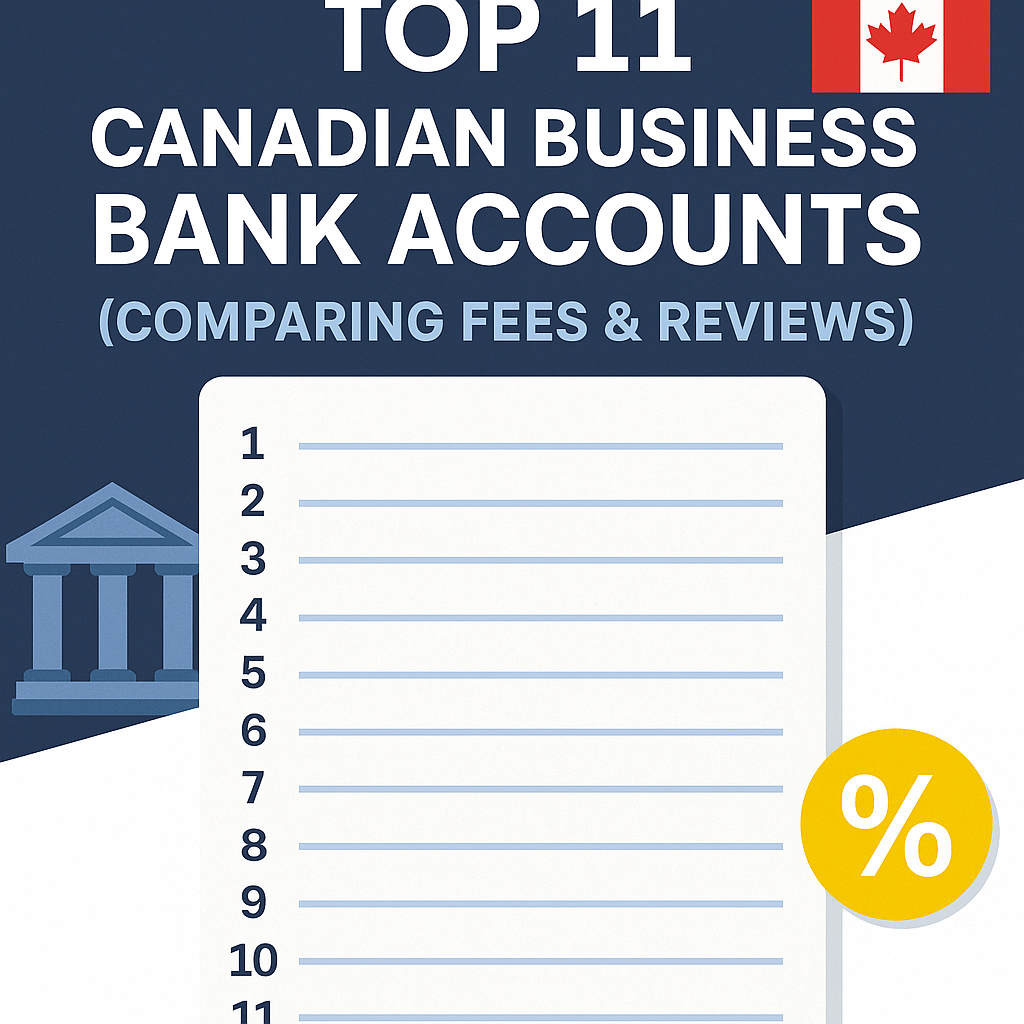GOOGLE ADS MANAGEMENT
ALL SERVICES- GRAPHIC DESIGN & BRANDING
➥ WEBSITE DESIGN TORONTO
➥ TORONTO LOGO DESIGN
➥ BROCHURE GRAPHIC DESIGN
➥ INFOGRAPHIC DESIGN
➥ BUSINESS CARD DESIGN
➥ PACKAGE DESIGN TORONTO
➥ ILLUSTRATION DESIGN
➥ ADVERTISING POSTER DESIGN
➥ BRANDING STRATEGY & SERVICES- ➤ VIEW ALL SERVICES
WEB DEVELOPMENT & SUPPORT
➥ CUSTOM WEB DESIGN TORONTO
➥ ECOMMERCE WEBSITE DESIGN TORONTO
➥ WEBSITE MAINTENANCE SERVICES
➥ SHOPIFY WEBSITE DESIGN
➥ SHOPIFY EXPERTS TORONTO
➥ WORDPRESS DEVELOPMENT
➥ WORDPRESS MAINTENANCE- ➤ VIEW ALL SERVICES
WEBSITE MARKETING & CONTENT
➥ SEO PACKAGES TORONTO
➥ TORONTO SOCIAL MEDIA AGENCY
➥ CONTENT MARKETING TORONTO
➥ PPC MANAGEMENT TORONTO
➥ AFFILIATE MARKETING CANADA
➥ STRATEGIC CONSULTATION- ➤ VIEW ALL SERVICES
ABOUT
RESOURCES- LET’S CHAT
Questions? Call us at
647-348-4995

GOOGLE ADS MANAGEMENT
ALL SERVICES- GRAPHIC DESIGN & BRANDING
➥ WEBSITE DESIGN TORONTO
➥ TORONTO LOGO DESIGN
➥ BROCHURE GRAPHIC DESIGN
➥ INFOGRAPHIC DESIGN
➥ BUSINESS CARD DESIGN
➥ PACKAGE DESIGN TORONTO
➥ ILLUSTRATION DESIGN
➥ ADVERTISING POSTER DESIGN
➥ BRANDING STRATEGY & SERVICES- ➤ VIEW ALL SERVICES
WEB DEVELOPMENT & SUPPORT
➥ CUSTOM WEB DESIGN TORONTO
➥ ECOMMERCE WEBSITE DESIGN TORONTO
➥ WEBSITE MAINTENANCE SERVICES
➥ SHOPIFY WEBSITE DESIGN
➥ SHOPIFY EXPERTS TORONTO
➥ WORDPRESS DEVELOPMENT
➥ WORDPRESS MAINTENANCE- ➤ VIEW ALL SERVICES
WEBSITE MARKETING & CONTENT
➥ SEO PACKAGES TORONTO
➥ TORONTO SOCIAL MEDIA AGENCY
➥ CONTENT MARKETING TORONTO
➥ PPC MANAGEMENT TORONTO
➥ AFFILIATE MARKETING CANADA
➥ STRATEGIC CONSULTATION- ➤ VIEW ALL SERVICES
ABOUT
RESOURCES- LET’S CHAT
Questions? Call us at
647-348-4995

GOOGLE ADS MANAGEMENT
ALL SERVICES- GRAPHIC DESIGN & BRANDING
➥ WEBSITE DESIGN TORONTO
➥ TORONTO LOGO DESIGN
➥ BROCHURE GRAPHIC DESIGN
➥ INFOGRAPHIC DESIGN
➥ BUSINESS CARD DESIGN
➥ PACKAGE DESIGN TORONTO
➥ ILLUSTRATION DESIGN
➥ ADVERTISING POSTER DESIGN
➥ BRANDING STRATEGY & SERVICES- ➤ VIEW ALL SERVICES
WEB DEVELOPMENT & SUPPORT
➥ CUSTOM WEB DESIGN TORONTO
➥ ECOMMERCE WEBSITE DESIGN TORONTO
➥ WEBSITE MAINTENANCE SERVICES
➥ SHOPIFY WEBSITE DESIGN
➥ SHOPIFY EXPERTS TORONTO
➥ WORDPRESS DEVELOPMENT
➥ WORDPRESS MAINTENANCE- ➤ VIEW ALL SERVICES
WEBSITE MARKETING & CONTENT
➥ SEO PACKAGES TORONTO
➥ TORONTO SOCIAL MEDIA AGENCY
➥ CONTENT MARKETING TORONTO
➥ PPC MANAGEMENT TORONTO
➥ AFFILIATE MARKETING CANADA
➥ STRATEGIC CONSULTATION- ➤ VIEW ALL SERVICES
ABOUT
RESOURCES- LET’S CHAT
Questions? Call us at
647-348-4995

GOOGLE ADS MANAGEMENT
ALL SERVICES- GRAPHIC DESIGN & BRANDING
➥ WEBSITE DESIGN TORONTO
➥ TORONTO LOGO DESIGN
➥ BROCHURE GRAPHIC DESIGN
➥ INFOGRAPHIC DESIGN
➥ BUSINESS CARD DESIGN
➥ PACKAGE DESIGN TORONTO
➥ ILLUSTRATION DESIGN
➥ ADVERTISING POSTER DESIGN
➥ BRANDING STRATEGY & SERVICES- ➤ VIEW ALL SERVICES
WEB DEVELOPMENT & SUPPORT
➥ CUSTOM WEB DESIGN TORONTO
➥ ECOMMERCE WEBSITE DESIGN TORONTO
➥ WEBSITE MAINTENANCE SERVICES
➥ SHOPIFY WEBSITE DESIGN
➥ SHOPIFY EXPERTS TORONTO
➥ WORDPRESS DEVELOPMENT
➥ WORDPRESS MAINTENANCE- ➤ VIEW ALL SERVICES
WEBSITE MARKETING & CONTENT
➥ SEO PACKAGES TORONTO
➥ TORONTO SOCIAL MEDIA AGENCY
➥ CONTENT MARKETING TORONTO
➥ PPC MANAGEMENT TORONTO
➥ AFFILIATE MARKETING CANADA
➥ STRATEGIC CONSULTATION- ➤ VIEW ALL SERVICES
ABOUT
RESOURCES- LET’S CHAT
Questions? Call us at
647-348-4995
![]()
![]()
![]()

- November 30, 2023
-
Liam Hunt
There are an estimated 1.19 million small businesses in Canada—representing about 97% of all employer businesses in the country. Needless to say, there are far fewer granting opportunities available to employers to fund their businesses.
The scarcity of small business grants makes them inherently competitive to obtain and underscores the importance of applying to as many as one qualifies for. If you don’t cast a wide net, you may not receive approval for a small business grant and, consequently, be left to fund your business’’ operations by other means, such as debt or equity financing.
Let’s take a look at the top small business loan opportunities for Canadian entrepreneurs and business owners, and discuss how to maximize your chances of getting approved for one.
Canadian Small Business Loans: A Primer
Small businesses are the backbone of the Canadian economy, contributing significantly to job creation, innovation, and economic diversification. However, these businesses often face unique challenges, particularly in securing funding. This is where small business grants come into play.
Unlike loans, grants provide funding that does not require repayment, making them an attractive option for businesses looking to expand, invest in new technologies, or enter new markets without the burden of additional debt or selling shares in the company.
Recognizing the potential of small businesses in driving economic growth, both federal and provincial governments have established numerous grant programs. These initiatives are designed to support various sectors, including technology, agriculture, environmental sustainability, and more, reflecting Canada’s diverse economic landscape.
Why Consider Grant Writing for Your Canadian Small Business?
- Financial Leverage: Grants provide financial resources that can be pivotal in scaling operations, researching and developing new products, or enhancing market competitiveness.
- Risk Mitigation: Since grants do not require repayment, they allow businesses to undertake projects or expansions with reduced financial risk.
- Credibility and Recognition: Receiving a grant can serve as a mark of credibility and recognition, enhancing a business’s reputation and potentially attracting further investment.
- Focus on Innovation and Growth: Many grants are geared towards innovation, research and development, and exporting – areas crucial for long-term business growth.
1. Canada Small Business Financing Program (CSBFP)
This program aims to help small businesses get loans from financial institutions by sharing the risk with lenders.
- Maximum Financing Available: $10 million (repayable)
- Suitable for: Small business owners in Canada who need funding to start or expand their business, purchase or improve their equipment, or for other business-related expenses.
- Website: Canada Small Business Financing Program
2. Industrial Research Assistance Program (IRAP)
IRAP provides funding to qualified firms and their innovative research and development projects.
- Maximum Financing Available: $1.15 million (repayable)
- Suitable for: Small and medium-sized enterprises in Canada engaged in technology-driven innovation.
- Website: NRC IRAP
3. Strategic Innovation Fund (SIF)
SIF supports large projects (over $10 million in requested contribution) that promise to accelerate growth and support R&D.
- Maximum Financing Available: No maximum limit.
- Suitable for: Businesses of all sizes that pursue large-scale transformative projects.
- Website: Strategic Innovation Fund
4. Canadian Agricultural Partnership
This partnership offers cost-share funding for processors and other businesses within the agricultural sector.
- Maximum Financing Available: $20K to $1M
- Suitable for: Agri-businesses seeking to enhance their productivity through technological or equipment upgrades.
- Website: Canadian Agricultural Partnership
5. AgriDiversity
A funding program aimed at assisting Indigenous Peoples and other underrepresented or equity-seeking groups in Canada to launch businesses in the agricultural sector. This includes women, youth, persons with disabilities, racialized people, and LGBTQ communities.
- Maximum Financing Available: 75% of operating expenses up to $200,000
- Suitable for: Agri-businesses seeking to enhance their productivity through technological or equipment upgrades.
- Website: AgriDiversity
6. Canada Digital Adoption Program (CDAP)
This smaller grant is available to small and medium-sized business owners in Canada to help facilitate their adoption of digital infrastructure.
- Maximum Financing Available: 90% of operating expenses up to $15,000
- Suitable for: Small service businesses looking to purchase new technologies to modernize their aging business.
- Website: Canada Digital Adoption Program (CDAP)
7. Enabling Accessibility Fund
This grant helps business owners expand their service offerings to better serve disabled persons and communities that require physical or non-physical accommodations (e.g., Deaf persons, vision impairment, intellectual disability, etc.).
- Maximum Financing Available: Up to $3 million
- Suitable for: Businesses seeking funding to create or revamp their building, programs or services to better accommodate those with disabilities.
- Website: Enabling Accessibility Fund
8. Tourism Growth Program (TGP)
Introduced in Federal Budget 2023, the Tourism Growth Program is designed to stimulate economic investment in companies that seek to foster tourism in Canada.
- Maximum Financing Available: Up to $250,000
- Suitable for: Businesses involved in the tourism sector, especially those in the Pacific region seeking <50% funding for expanding their tourism operations
- Website: Tourism Growth Program
9. Women Ecosystem Fund (WES Fund)
This grant is designed to support the Canadian small business ecosystem, and to support women-owned businesses across the country. This is part of the federal government’s stated commitment to advance gender equality and equity.
- Maximum Financing Available: Up to $3,000,000
- Suitable for: Small to medium-sized businessed owned by women-identifying individuals in Canada (includes non-profits and charities)
- Website: Women Ecosystem Fund
10. Youth Employment and Skills Program
In collaboration with 11 federal agencies, the Youth Employment and Skills Strategies Program is designed to help businesses in Canada hire young people between the ages of 15 and 30. This program includes a specific sub-program dedicated to creating summer jobs for youth.
- Maximum Financing Available: Up to 50% of minimum wage for summer job creation
- Suitable for: Small to medium-sized businessed seeking to hire young people with limited job market experience for temporary seasonal positions
- Website: Youth Employment and Skills Strategy (YESS)
Tips for Successful Small Business Grant Writing in Canada
Although grant writing is difficult to master, and there is no strict formula for success, you can improve your chances of filing a successful application by accounting for the following elements.
- Understand the Grant’s Objective: Tailor your proposal to align with the grant’s goals and criteria.
- Be Clear and Concise: Write a clear, direct proposal that articulates your objectives, methodology, and the expected outcomes.
- Provide Detailed Budgets: Justify the financial aspects of your proposal with a detailed budget.
- Highlight Your Capability: Demonstrate your team’s experience and ability to successfully carry out the project.
- Proofread and Review: Ensure your application is free of errors and is as strong as it can be before submission.
Who Qualifies for Small Business Loans in Canada?
Qualifying for small business grants in Canada typically depends on several factors, including the nature of the business, the specific requirements of the grant program, and the business’s location. While each grant has its unique eligibility criteria, there are some common qualifications that many programs consider:
1. Business Type and Size: Most grants are targeted at small and medium-sized enterprises (SMEs). The definition of an SME can vary, but it often includes having a certain number of employees (for example, fewer than 500) and not exceeding a certain annual revenue threshold.
2. Industry or Sector: Some grants are specific to certain industries or sectors, such as technology, agriculture, environmental sustainability, or innovation. Businesses operating within these sectors are more likely to qualify.
3. Business Location: Many grants are designed to support businesses in specific geographical areas, especially to boost local economies or develop certain regions.
4. Project Type and Objectives: Grants often target specific types of projects, like research and development, export expansion, or technological innovation. The objectives of your project should align with the goals of the grant.
5. Legal and Financial Standing: A business typically needs to be legally registered in Canada and in good financial standing without outstanding major debts or legal issues.
6. Ownership and Leadership: Certain grants may have criteria regarding the business ownership, such as grants specifically for women entrepreneurs, Indigenous peoples, or other minority groups.
7. Compliance with Specific Grant Requirements: Each grant program will have its set of specific requirements. This could include detailed business plans, financial statements, project proposals, and timelines.
It’s important for small business owners to carefully review the eligibility criteria for each specific grant they are considering and ensure they meet all the requirements before applying. Checking official sources like government websites or directly contacting the grant-providing organization for up-to-date information is advisable.
Conclusion: Find Your Funding With Professional Grants
While applying for small business grants can be a complex process, securing one can significantly aid in the growth and success of your small busines brand. Given the competitiveness of grant applications, consider hiring a professional agency that specializes in grant writing.
Grant writing agencies can help navigate the intricacies of the application process, improve your proposal’s quality, and enhance your chances of securing funding. Remember, the time and resource investment in a professional service could mean the difference between obtaining essential funding or missing out on these competitive opportunities.
Remember that the granting process is only one element of a successful business strategy. To grow your small business, be sure to diversify your marketing and funding streams. A well-managed pay-per-click marketing program can help you get there.
(Note: This article mentions small business grant opportunities available Canada-wide. Check with your local provincial government website[s] to browse province or region-specific grants.)
Liam Hunt, M.A., is a writer and digital marketing specialist whose writing has appeared in the Vancouver Sun, Asia Times, and US News and World Report.
RECENT POSTS
- PolicyMe – Legit Canadian Insurance Policy? Let’s Review…
- 10 Small Business Loans & Financing Options in Ontario
- Top 8 Small Business Insurance Providers in Canada (2025)
- Top 11 Canadian Business Bank Accounts (Comparing Fees & Reviews)
- SCAM ALERT: How a Fake Google Ads Inquiry Nearly Got Us (And How to Protect Yourself)

Ready to chat about how Little Dragon Media can enhance your business?
Call us now at 647-348-4995 or

OUR AWARDS & CERTIFICATIONS






WHAT OUR CLIENTS ARE SAYING



Little Dragon Media's professionalism and commitment to delivering excellence are truly commendable. I highly recommend their services... Thank you for your stellar work!
- Delna Bharucha

Little Dragon Media worked on developing our logo and website. They did an absolutely AMAZING job on both projects. These guys ROCK and you won't be disappointed.
- Sonia Nutt

My team had a great experience working with Little Dragon Media. We will certainly engage with Little Dragon Media for any additional projects in the future. Highly recommend!
- Carly Rooney



- 682A St-Clair West Toronto, ON M6C 1B1
- (647)-348-4995
- info@littledragon.ca
MOST POPULAR SERVICES
RECENT POSTS
GET MORE CLIENTS
Don't let your competitors take over. We'll help you climb to the top and get more clients.



- 682A St-Clair West Toronto, ON M6C1B1
- (647)-348-4995
- info@littledragon.ca
MOST POPULAR SERVICES
RECENT POSTS
GET MORE CLIENTS
Don't let your competitors take over. We'll help you climb to the top and get more clients.

Contact | Press Mentions | Privacy Policy | Terms of Service
© 2024 Little Dragon Media. All Rights Reserved.






